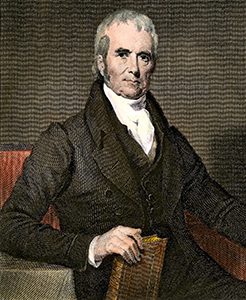POP CIV BREAKING NEWS: Roe v. Wade Overturned
Decision in Dobbs v. Jackson Women’s Health Organization repeals Roe and Casey
On June 24, 2022, the Supreme Court overturned nearly 50 years of precedent set by the 1973 decision in Roe v. Wade. The Court’s 6-3 decision in Dobbs v. Jackson Women’s Health Organization overturned Roe and its successor, 1992’s Planned Parenthood of Southeastern Pennsylvania v. Casey. Justice Samuel Alito, writing for the majority, stated:
“The Constitution does not confer a right to abortion; Roe and Casey are overruled; and the authority to regulate abortion is returned to the people and their elected representatives.”
The opinion is likely to have a seismic impact on Americans’ ability to access abortion procedures. As we covered in our recent Pop Civ post on abortion in America, several states had so-called “trigger laws” on the books, designed to restrict access to abortions once the Supreme Court issued a decision overtuning Roe v. Wade. As of today, thirteen states have such laws that will take effect within a month of last week’s decision: Idaho, Utah, Wyoming, North Dakota, South Dakota, Oklahoma, Texas, Missouri, Arkansas, Louisiana, Kentucky, Tennessee, and Mississippi. These states’ laws make exceptions that permit abortions when the mother’s life is at risk, but most prohibit abortion in cases involving rape and incest.
Justice Alito was joined by Associate Justices Clarence Thomas, Neil Gorsuch, Brett Kavanaugh, and Amy Coney Barrett. While the Court is typically reluctant to reject established law, Justice Alito pointed to decisions in cases like Brown v. Board of Education to justify overturning decades of legal precedent in special circumstances:
“Roe was also egregiously wrong and deeply damaging. For reasons already explained, Roe’s constitutional analysis was far outside the bounds of any reasonable interpretation of the various constitutional provisions to which it vaguely pointed.”
The ruling in support of Dobbs v. Jackson was 6-3, while the ruling overturning Roe v. Wade was 5-4. The rulings fell largely along political lines: The court’s conservative wing voted to overturn Roe v. Wade, which guaranteed a constitutional right to abortion, and the court’s liberal side voted to uphold the landmark 1973 ruling. While Chief Justice John Roberts voted with the majority to uphold Mississippi’s law restricting abortion to 15 weeks, his concurrence criticized the Court for fully overturning Roe and Casey. Describing his reluctance to reverse those cases’ precedents, the Chief Justice wrote:
“Surely we should adhere closely to principles of judicial restraint here, where the broader path the Court chooses entails repudiating a constitutional right we have not only previously recognized, but also expressly reaffirmed applying the doctrine of stare decisis. The Court’s opinion is thoughtful and thorough, but those virtues cannot compensate for the fact that its dramatic and consequential ruling is unnecessary to decide the case before us.”
Justices Stephen Breyer, Sonia Sotomayor, and Elena Kagan issued a strongly worded dissent. Describing the impact of the Court’s decision, they wrote:
“[This decision] says that from the very moment of fertilization, a woman has no rights to speak of. A State can force her to bring a pregnancy to term, even at the steepest personal and familial costs. An abortion restriction, the majority holds, is permissible whenever rational, the lowest level of scrutiny known to the law. And because, as the Court has often stated, protecting fetal life is rational, States will feel free to enact all manner of restrictions. The Mississippi law at issue here bars abortions after the 15th week of pregnancy. Under the majority’s ruling, though, another State’s law could do so after ten weeks, or five or three or one—or, again, from the moment of fertilization. States have already passed such laws, in anticipation of today’s ruling. More will follow.”
What will happen in Virginia regarding access to abortions remains to be seen. Following the announcement of the decision in Dobbs, Governor Glenn Youngkin (R) announced his plans to ban abortion in the Commonwealth after 15 weeks of gestation. How such legislation would fare in the politically divided General Assembly is also uncertain. The Democratic Party has control of the State Senate by a small margin (21-19); the Republican Party controls the House with a similarly small majority (52-48).






